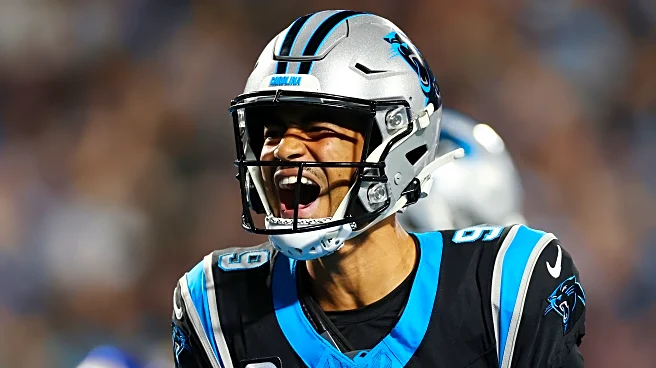Rapid Read • 8 min read
HBO, originally launched in 1972 as a premium cable network providing ad-free access to Hollywood movies, has undergone a significant transformation over the decades. Initially focused on access-based innovation, HBO shifted towards original content production in the mid-1990s, commissioning its first homegrown scripted series, 'Oz,' in 1995. By the mid-2000s, half of HBO's budget was allocated to original content, with shows like 'The Sopranos' gaining critical acclaim. This shift led to a substantial increase in viewership, with 70% of on-demand viewing by 2016 being HBO's original series. The network's success in establishing a brand and content expertise made it one of the most profitable networks globally by the early 2010s.
AD
HBO's transition to a content-driven model has had a profound impact on the television industry, setting a precedent for other networks and streaming services. By prioritizing original content, HBO has not only increased its profitability but also influenced the broader media landscape, encouraging competitors to invest heavily in original programming. This shift has contributed to the 'Peak TV' era, characterized by an abundance of high-quality scripted series. The success of HBO's model underscores the importance of unique content in attracting and retaining viewers, shaping the strategies of both traditional networks and new streaming platforms.
As the television industry continues to evolve, HBO's focus on original content is likely to drive further innovation and competition. Other networks and streaming services may increase their investment in original programming to compete with HBO's established brand. Additionally, HBO's success may lead to more collaborations and mergers within the industry, as companies seek to expand their content offerings and reach wider audiences. The ongoing demand for high-quality content will likely result in more diverse and inclusive programming, reflecting changing societal values and preferences.
HBO's shift from access-based to content-driven competition highlights broader trends in media consumption and production. The emphasis on original content has not only transformed the television industry but also influenced cultural narratives and representation. As networks and streaming services prioritize unique storytelling, there is potential for more diverse voices and perspectives to be showcased, contributing to a richer and more inclusive media landscape. This evolution also raises questions about the sustainability of content production and the impact of increased competition on smaller creators and independent studios.
AD
More Stories You Might Enjoy











